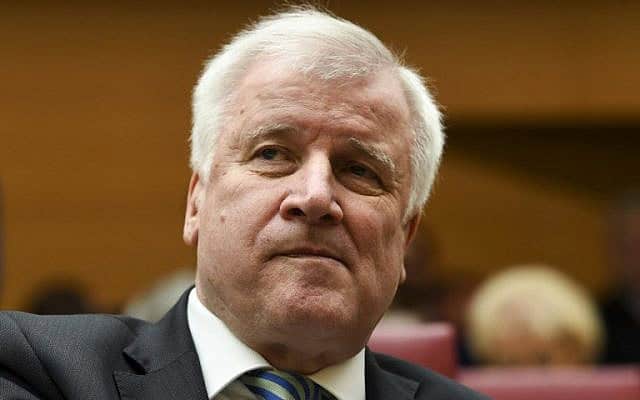BERLIN: Chancellor Angela Merkel’s hardline new interior minister declared that Islam is not “part of Germany” in an interview published today, setting off a political storm two days into her fourth term.
Asked by the top-selling Bild daily whether the influx of Muslim migrants and asylum seekers to Europe’s top economy meant that Islam now belonged to the fabric of the nation, Horst Seehofer replied “no”.
“Islam is not part of Germany. Christianity has shaped Germany including Sunday as a day of rest, church holidays, and rituals such as Easter, Pentecost and Christmas,” he said.
“The Muslims who live among us are naturally part of Germany. But that of course does not mean that we, out of a false sense of deference, should sacrifice our traditions and customs.”
Germany’s Muslim community is estimated to count about 4.5 million members, around 1.8 million of whom are German citizens.
Most are descendants of Turkish so-called “guest workers” invited to Germany in the 1960s and 1970s.
The community grew again with the arrival since 2015 of more than one million asylum seekers from war-torn Muslim-majority countries such as Syria and Afghanistan.
Seehofer’s provocative comments come just two days after Merkel was sworn in for a fourth term with a new right-left “grand coalition” government.
The outspoken Seehofer, leader of the Christian Social Union (CSU), the Bavarian sister party of Merkel’s Christian Democrats, is new to the cabinet.
His expanded interior super-ministry also covers “Heimat” or homeland affairs, intended to recapture claims to patriotism and national identity from the far-right AfD, which won nearly 13 percent of the vote in September’s general election.
Powerful conservative Wolfgang Schaeuble said in 2006 that Islam was part of Germany and Europe as interior minister in Merkel’s first cabinet, provoking little reaction.
Christian Wulff, then president of the country, revived the phrase in 2010, this time touching off a heated national debate, with right-wing conservatives accusing him of denying Germany’s Judeo-Christian roots.
Merkel has come down firmly on the side of inclusion, repeatedly stating that Islam and Muslims belonged in Germany, and vocally defending the stance at the height of the refugee influx.
Seehofer’s comments are likely to prove divisive in the fledgling coalition, which only came together when the reluctant SPD got on board after months of political paralysis.
Juergen Trittin of the opposition Greens sharply criticised Seehofer, saying a stance of exclusion would be “catastrophic” and only benefit the anti-immigration AfD.
Bavaria is holding a state election in October, when the CSU is expected to face a strong challenge from the far-right.
AFP

